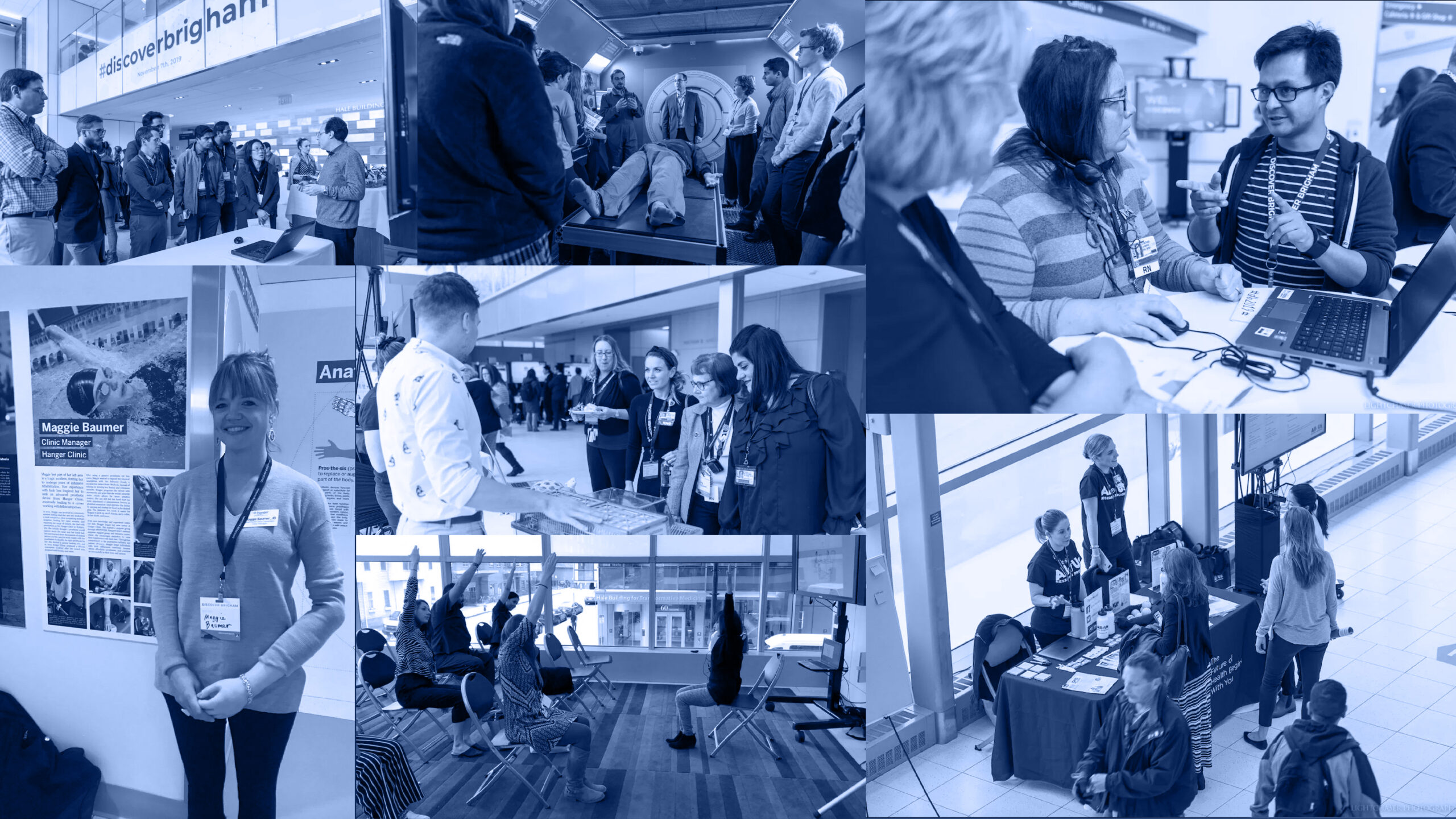27 Oct Discover Brigham: Demo Spotlight Series
Virtual Demonstrations
November 12, 11:00 – 11:45am
Virtual demos consist of interactive live demonstrations through which researchers, clinicians, and staff have the opportunity to showcase their research and/or clinical innovations to a large audience.
This year we have nine exciting interactive demos lined up for you experience. Check out the list below!
A Nasal Spray to Prevent the Transmission of Respiratory Viruses
Outbreaks such as COVID-19 are predominantly transmitted through inhalation of contaminated aerosols. To demonstrate a new pocket-sized nasal spray that kills and captures inhaled viruses, researchers will use a 3D printed model of a nasal cavity to help to attendees visualize their innovation and understand its potential.
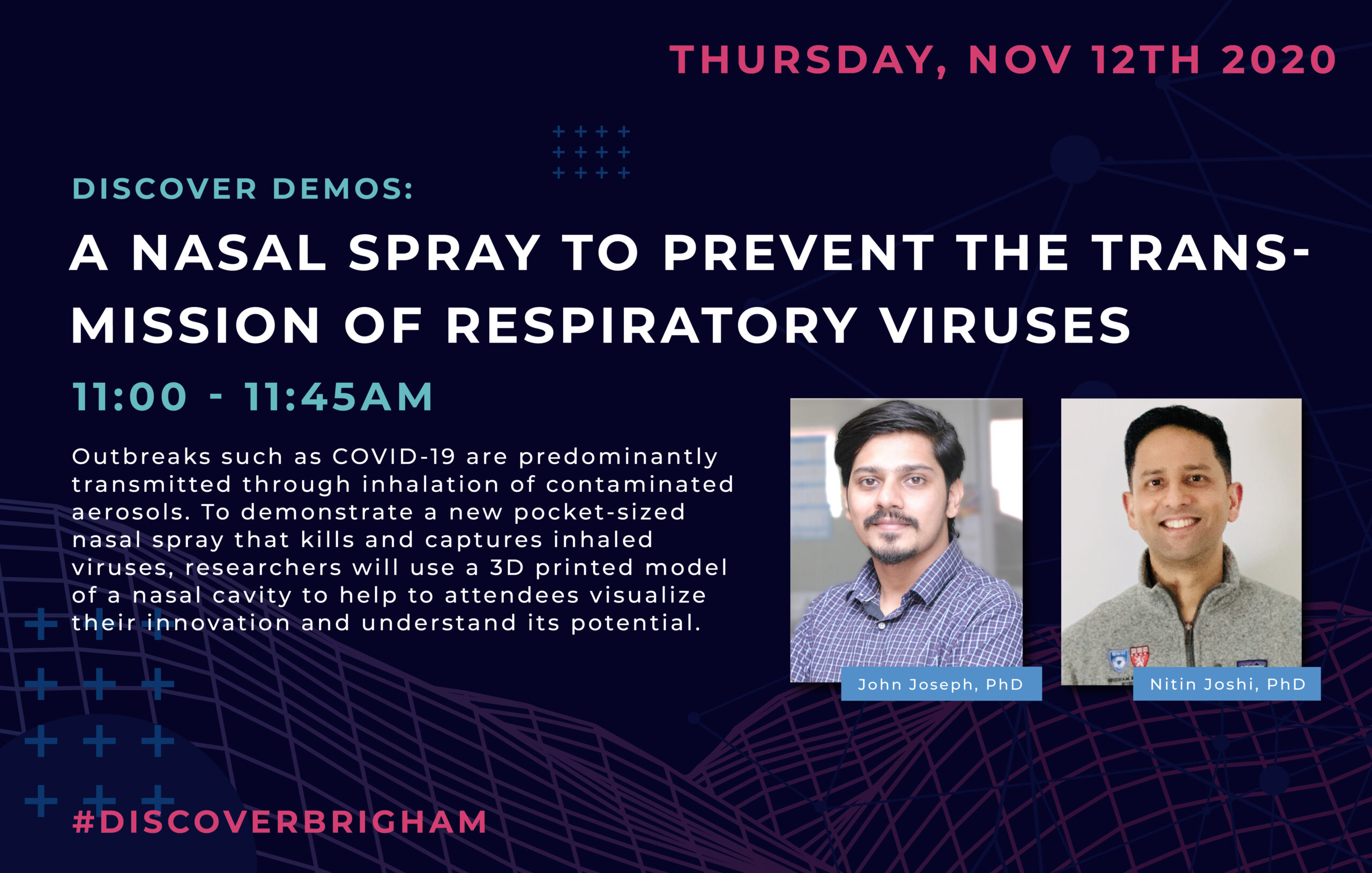
AI-Powered Approach to Maintain Stable Vital Signs During Cesarean Delivery
BWH researchers have used AI to create an algorithm to predict the blood pressure and determine the medication doses needed to maintain stable vital signs. This demo will show the decision making of the algorithm and how parameters can be adjusted and personalized based on specific patients needs.
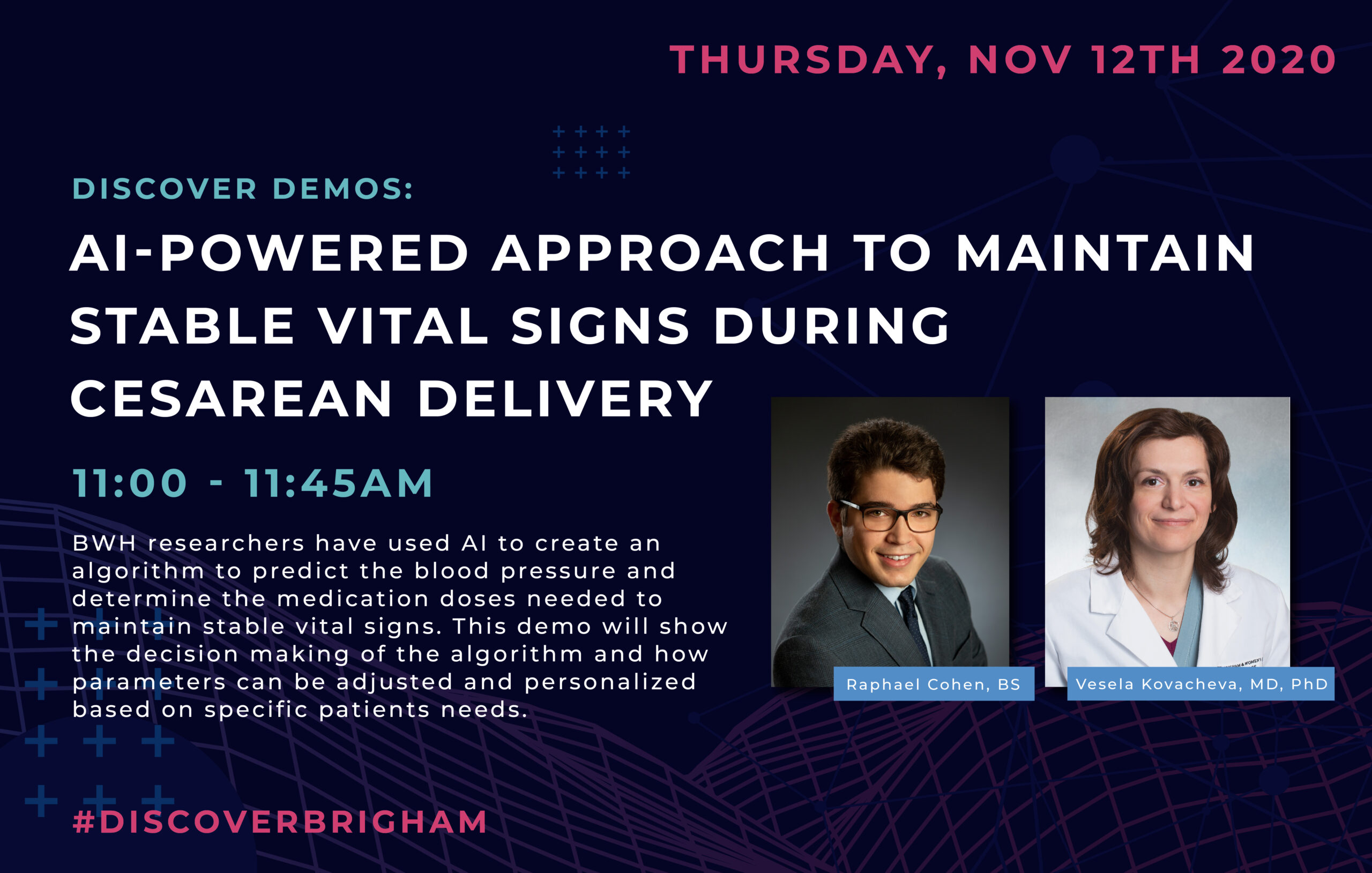
Smartphone-based Microscopes with Applications in Infectious Diseases and Fertility Diagnostics
Through smartphone microscopy and advanced image processing techniques, this team has been developing notable diagnostic applications such as Zika diagnosis, SARS-CoV-2 detection, HIV-management, ovulation prediction and male infertility screening. With this innovation they hope to eventually help combat against epidemics.
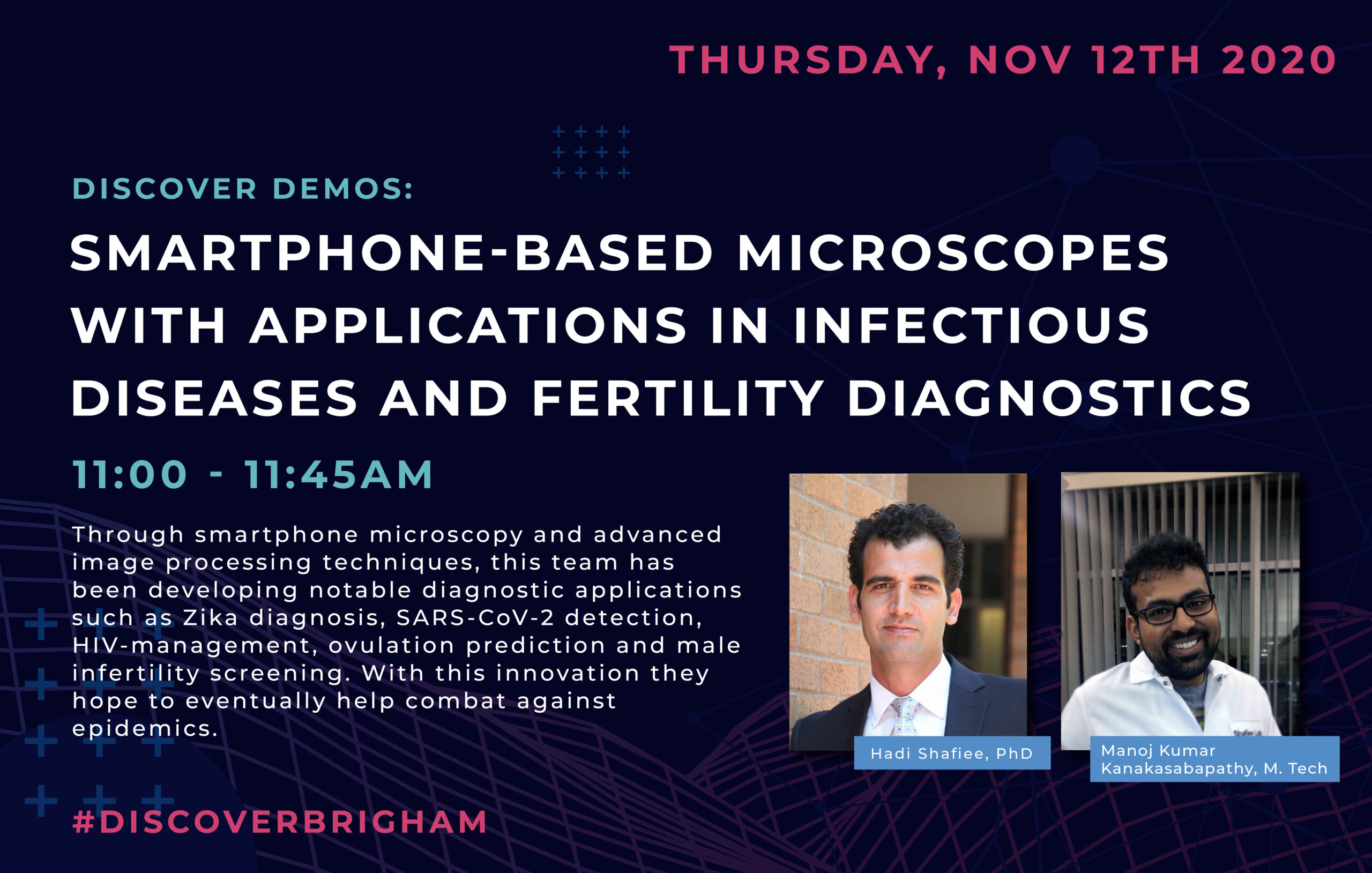
A Novel Bronchoscopic Approach to Treating Severe Emphysema
COPD is a major public health burden and there are not many options for treating the associated severe emphysema. The BWH Lung Center is now offering an innovative therapy known as bronchoscopic lung volume reduction (BLVR) to approach severe emphysema associated with hyperinflation.
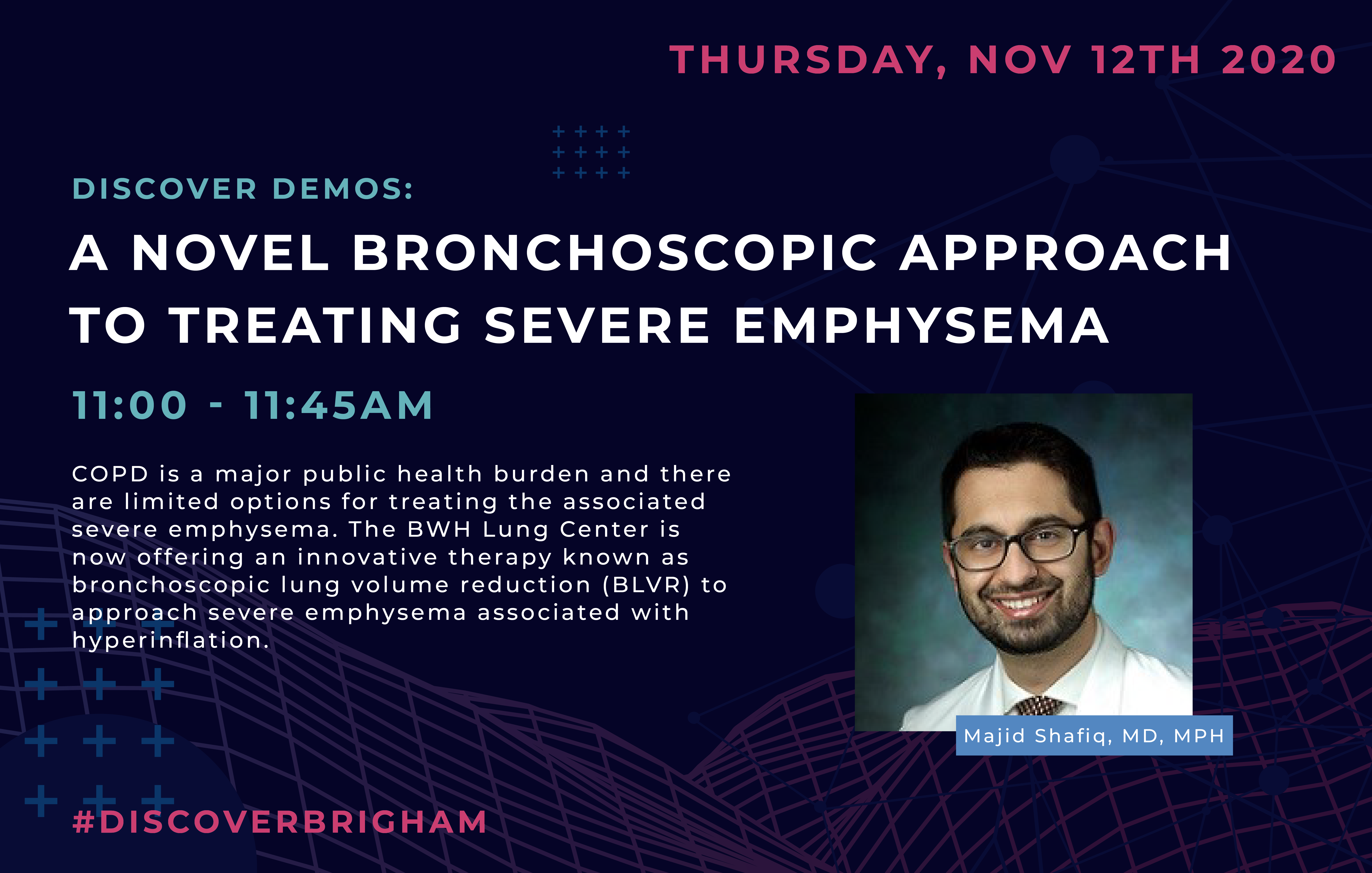
Biomarker Discover Process to Identify Individuals at High Risk of Developing Tuberculosis Disease
Tuberculosis Disease (TB) is one of the leading global causes of death from an infectious disease. This demo will showcase the machine learning process of developing blood-based gene expression biomarkers to predict development of TB in those exposed to the bacteria.
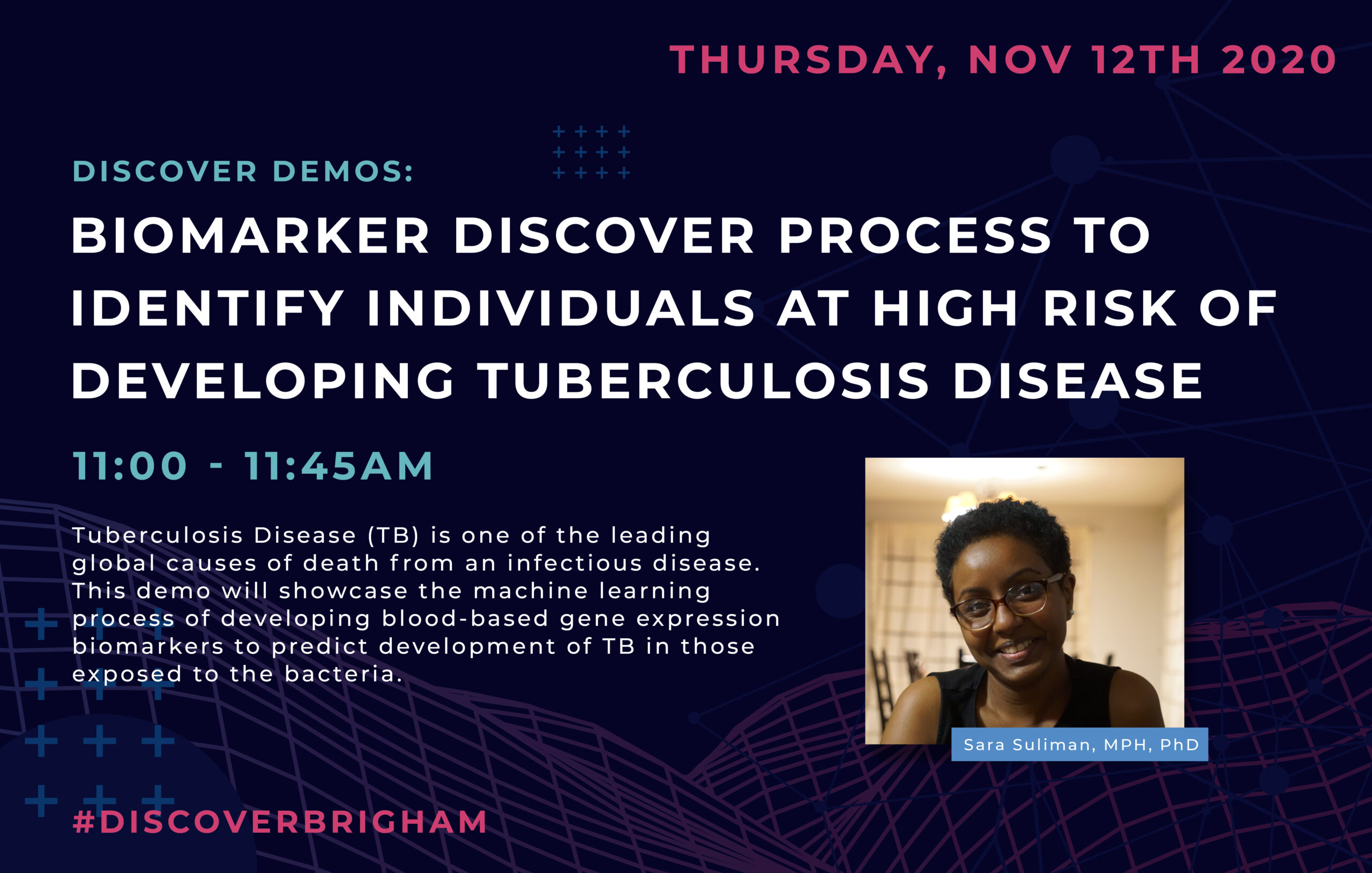
Hey Briggie: The Use of Artificial Intelligence to Improve Patient Safety and Experience
“Briggie,” a conversational AI voice assistant in the form of a teddy bear, was designed to interact with patients to inquire about pain, positioning and other needs, as well as report back to the nurse. This technology is especially critical during the pandemic in order to limit non-essential physical contact while also improving overall efficiency and quality of care.
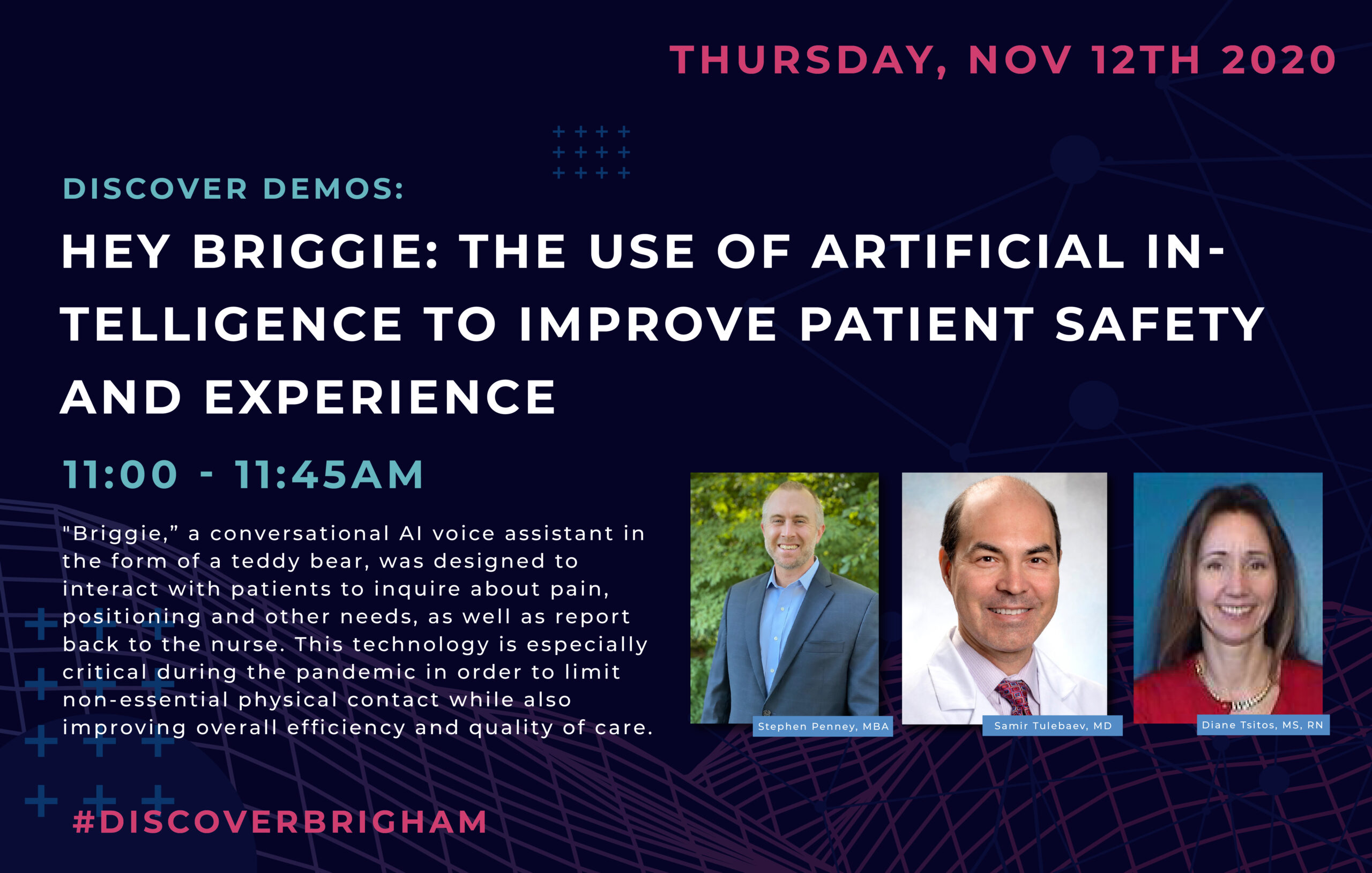
Injection Molded Autoclavable, Scalable, Conformable (iMASC) System for Aerosol-based Protection
This demo will showcase the design and testing process for an injection molded prototype N95 respirator that was made for healthcare workers.

Real-Time, Point-of-Care Pathology Diagnosis via Embedded Deep Learning
Cancer diagnosis is urgently needed in low resource settings. This low-cost, 3D-printable microscope embedded with a deep-learning model will demonstrate accurate classification of whole slides and allow for the user to scroll, zoom, and pan through the imaged slide and heatmap output.
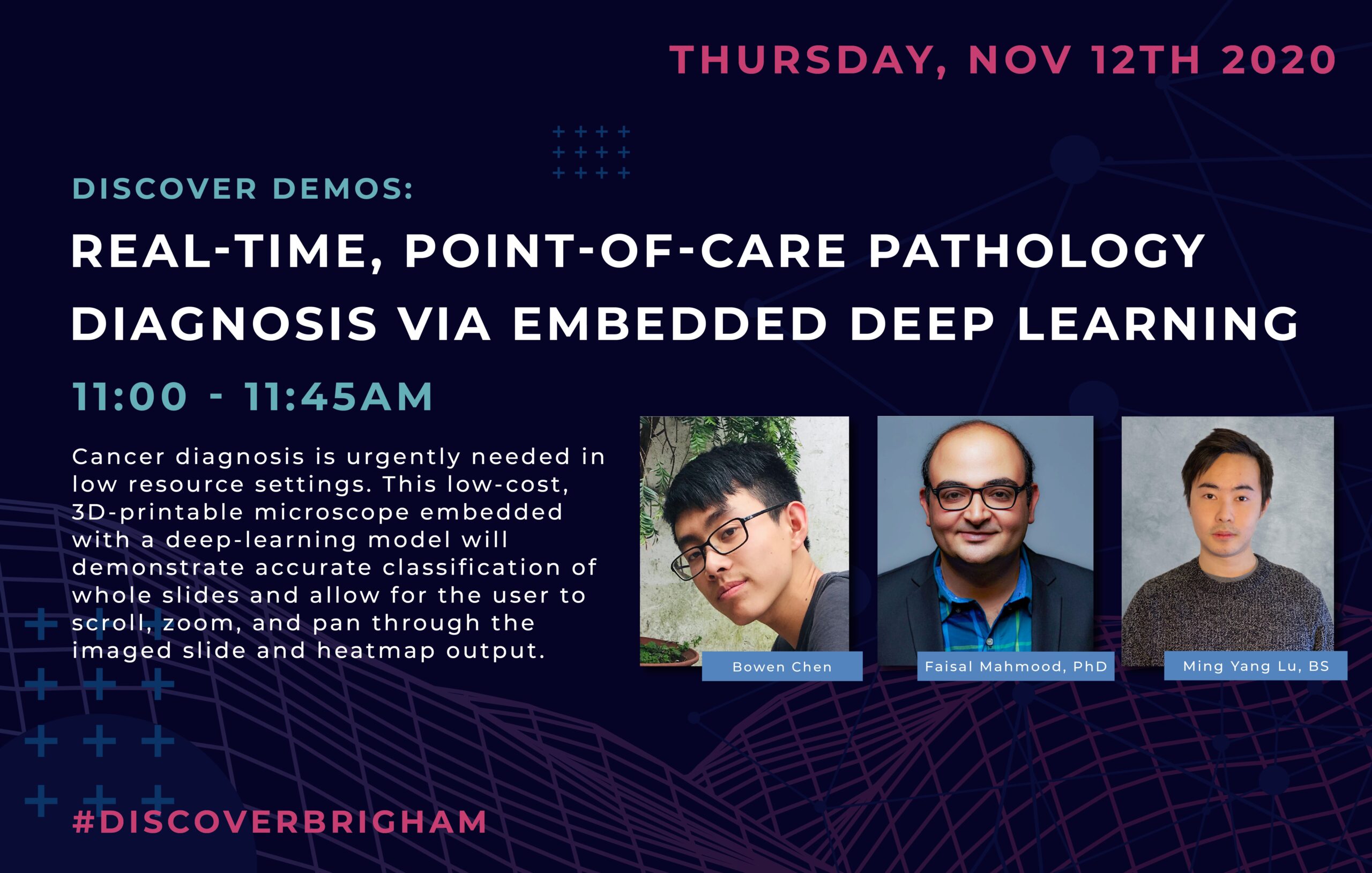
Robotic Bronchoscopy
Currently, there is low diagnostic yield from transbronchial biopsies. Researchers have developed a multi-section robot to increase the dexterity of the bronchoscope which will be demonstrated in action at Discover Brigham.
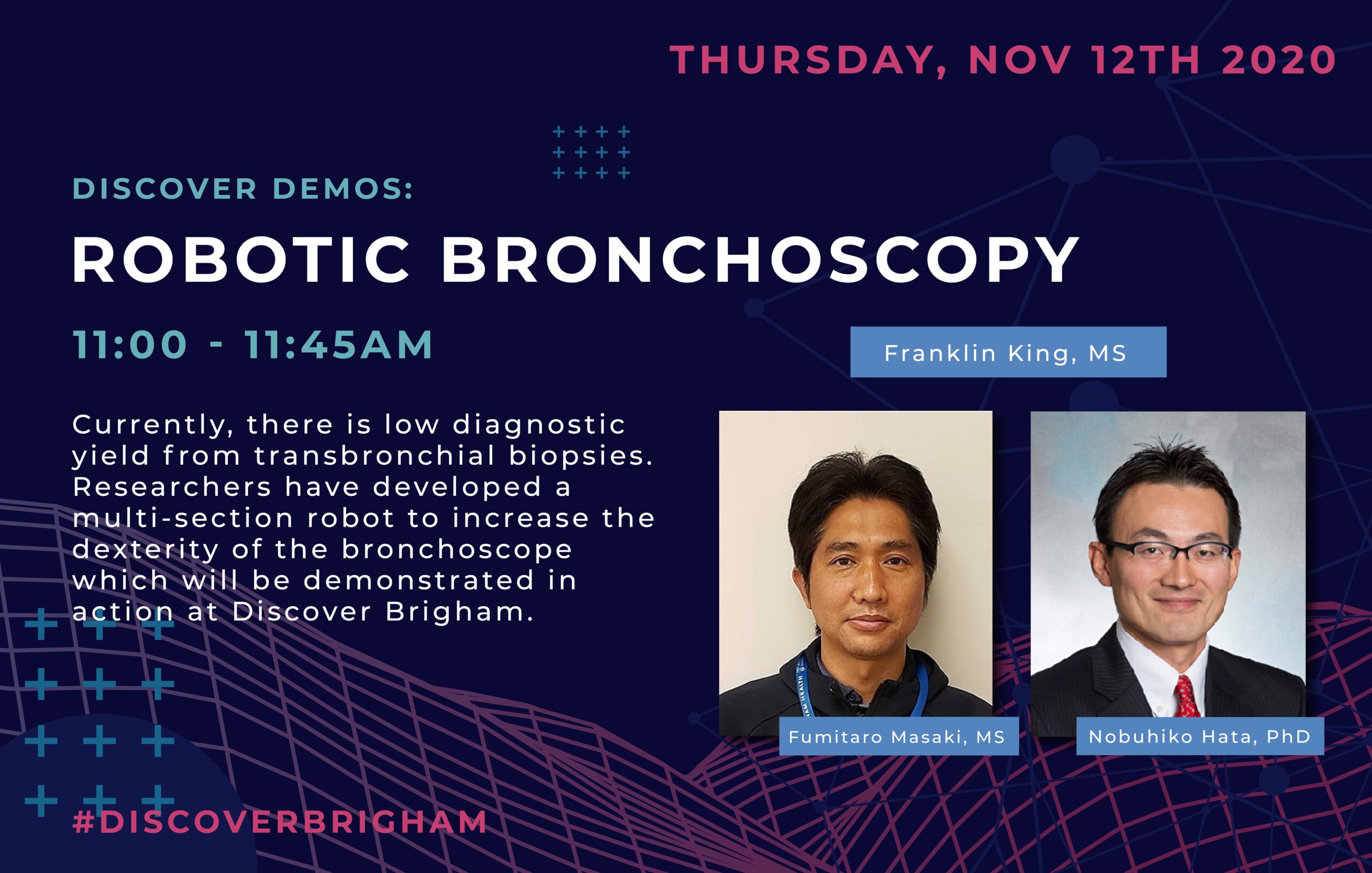

Register for Discover Brigham here!
Learn more about the six sessions and the rest of day on our website here!
Discover Brigham is an annual event that provides the community with a firsthand look at the incredible action going on behind-the-scenes at Brigham and Women’s Hospital. This unique event showcases current projects and accomplishments of investigators who are paving the way for further discovery and innovation. This year, we are reimagining Discover Brigham in light of COVID-19 and will be hosting it virtually. We are truly excited for this extraordinary opportunity to reach an even broader population of global citizens, clinicians, budding scientists and family members.
